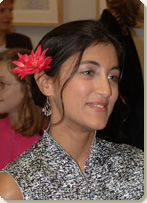When I was young I saw a woman drawing pictures of squirrels using dots. I didn’t understand why anyone would go to so much trouble – surely there was a better way to draw squirrels. Over the next few years, I thought a lot about what could make this woman spend hours drawing squirrels one dot at a time.
One day in high school, unable to concentrate in class, I thought again about this woman and turned over my notes and started making dots. As I tapped away with my pen, I noticed class was passing by a lot faster that afternoon. During the rest of high school and college, I covered pieces of paper with tiny dots. It helped pass the time and alleviated my boredom during class. I used what I had: felt-tipped writing pens and typing paper.
After college, I put my doodling away as I prepared to enter the workforce. When the excitement of full time employment wore off, I pulled out my dots again. Looking back at the earliest pieces, I noticed the ink had started to fade and bleed and the paper had started to discolor. I went in search of a more permanent medium, and discovered gouache along with acid-free paper.
I soon realized there was more to changing from ink to gouache than simply switching media. No longer could I doodle in meetings or class. I had to set aside a time and space in which to paint. Without a lecturing teacher in the background, I had to make do with NPR.
Most significantly, gouache has introduced a larger range of colors to my palette, and I have been challenged to find ways in which to integrate the dynamics and subtlety of color into my style. Using gouache has allowed me to experiment with a variety of colors, and the effects of mixing them, and using different colors in different contexts. Using gouache paint has had a dramatic impact on the style of my work, and has opened up many new directions for me to explore.
– Sutapa Das
